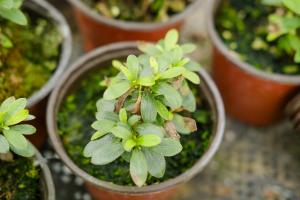Introduction
Tomato plants are a common sight in many gardens and households, but are they safe for pets, specifically cats? If you're a cat owner and have a tomato plant in your home, it's important to know the potential dangers these plants may pose to your feline friend.
Toxicity of Tomato Plants
The leaves and stems of the tomato plant contain a chemical called solanine, which is toxic to cats if ingested in large amounts. Solanine is a glycoalkaloid poison found in members of the nightshade family, including tomatoes, and can cause symptoms such as vomiting, diarrhea, lethargy, and in severe cases, even death.
How Cats Are Exposed to Tomato Plants
Cats may come into contact with tomato plants in a number of ways, such as by eating the leaves, stems, or unripe fruit, or by rubbing against the plant and getting the juice on their skin. In some cases, cats may also be exposed to solanine by ingesting other plants in the nightshade family.
Symptoms of Tomato Plant Poisoning
If you suspect that your cat has ingested or come into contact with a tomato plant, it's important to look out for symptoms of poisoning. These symptoms may include vomiting, diarrhea, lethargy, loss of appetite, and behavioral changes. In some cases, cats may also experience muscle tremors, seizures, and difficulty breathing.
Treatment for Tomato Plant Poisoning
If you suspect that your cat has ingested or come into contact with a tomato plant, it's important to seek veterinary care immediately. Treatment for tomato plant poisoning may include inducing vomiting, administering activated charcoal to bind and remove the toxin from the stomach, and providing supportive care such as intravenous fluids and medications to manage symptoms.
Preventing Tomato Plant Poisoning
The best way to prevent tomato plant poisoning in cats is to keep tomato plants out of their reach. If you have tomato plants in your home, make sure they are placed in a location where your cat cannot access them. Additionally, you may want to consider using natural deterrents such as citrus sprays or placing orange peels around the plant to keep your cat away.
Conclusion
While tomato plants can be a beautiful addition to any garden or home, they can pose a serious threat to cats if ingested. It's important for cat owners to be aware of the potential dangers of tomato plants and take steps to prevent their feline friends from coming into contact with them. If you suspect that your cat has ingested or come into contact with a tomato plant, seek veterinary care immediately.

 how many times do yo...
how many times do yo... how many planted tre...
how many planted tre... how many pine trees ...
how many pine trees ... how many pecan trees...
how many pecan trees... how many plants comp...
how many plants comp... how many plants can ...
how many plants can ... how many plants and ...
how many plants and ... how many pepper plan...
how many pepper plan...































